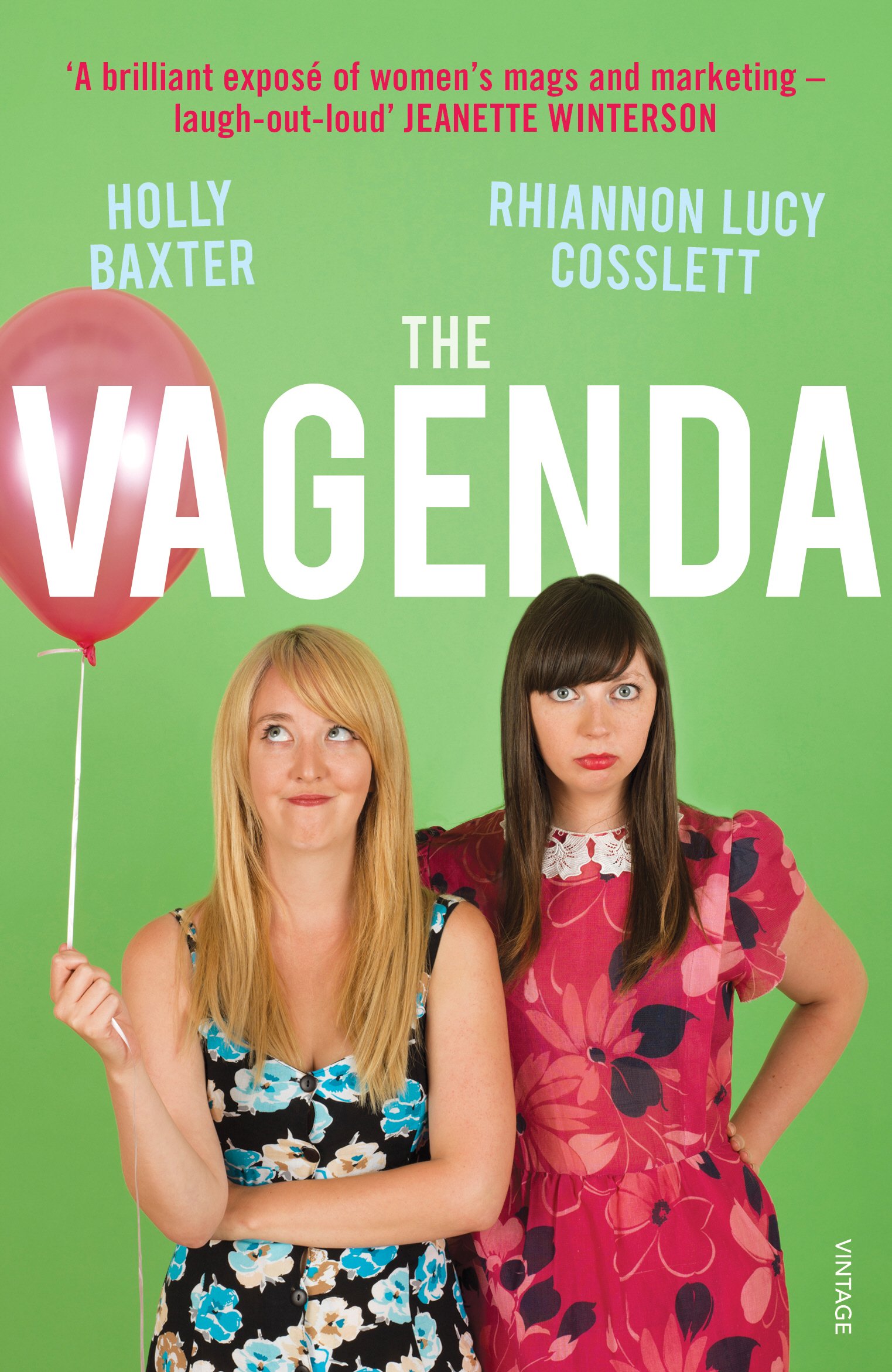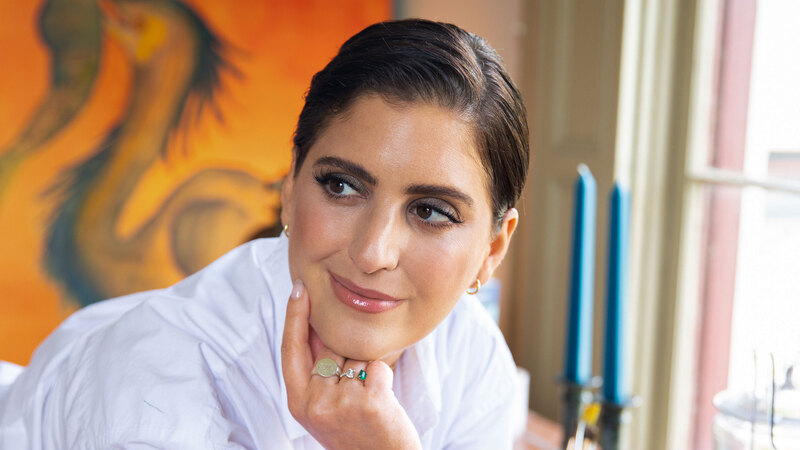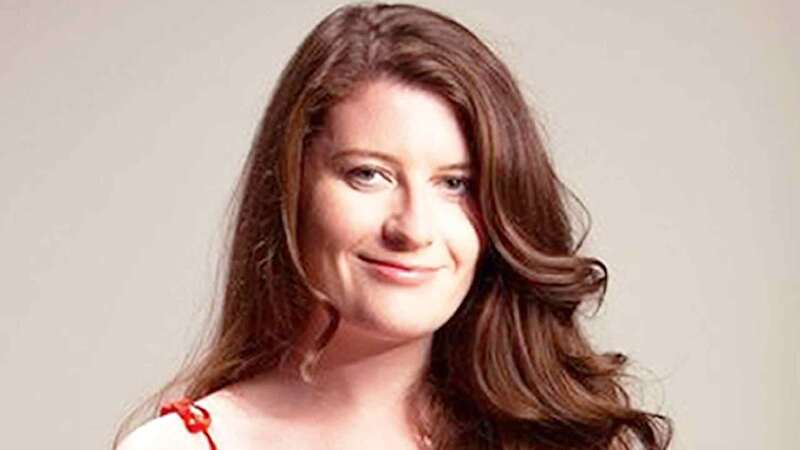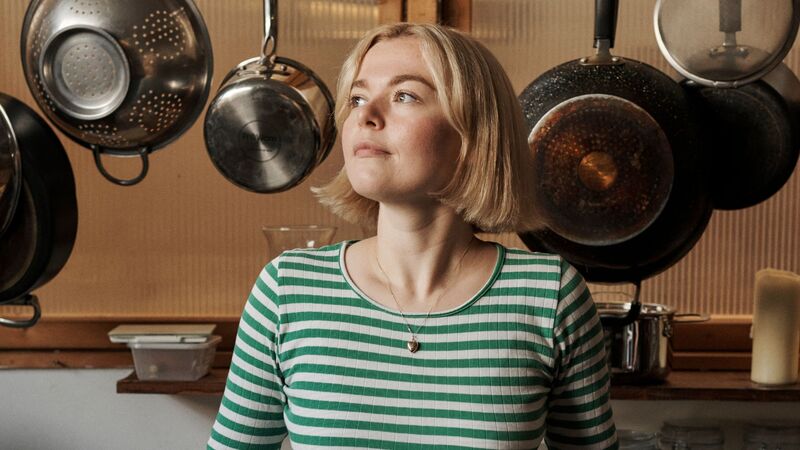You are viewing your 1 free article this month. Login to read more articles.
Holly Baxter and Rhiannon Lucy Cosslett discuss the damaging impact the media has on women's self-esteem
 Caroline Sanderson
Caroline SandersonCaroline Sanderson is a non-fiction writer, editor and books journalist. Her books include a travel narrative, A Rambling Fancy: in the F ...more
The popular blog and ‘media critique’, the brainchild of two flatmates incensed by women’s magazines, comes into print

Caroline Sanderson is a non-fiction writer, editor and books journalist. Her books include a travel narrative, A Rambling Fancy: in the F ...more
On the way to interview Holly Baxter and Rhiannon Lucy Cosslett, co-authors of The Vagenda: A Zero Tolerance Guide to the Media (Square Peg, May), I buy a copy of the magazine they single out as “always a good example of utter vapidity”. And so it proves. With coverlines like: “Juicerexia: The New Eating Disorder in Disguise”; and “Is Your Man Programmed to Cheat? The Scientific Checklist You Need to Use”, I don’t even have to open it to see why they describe women’s magazines as “a minefield of misinformation and manufactured self-loathing”.
There is not a thong’s width of a doubt that Baxter and Cosslett have hit upon a great big fat issue with The Vagenda. Thirteen publishers competed to buy the book, which was eventually acquired in a six-figure deal by Rosemary Davidson at Square Peg. “The whole team was determined to publish this potentially agenda-setting publication by two extremely smart young women,” commented Davidson. In turn, the pair chose Square Peg because, says Cosslett, “we had such a great debate with them”. It is testament to the book’s nailing of the zeitgeist that its authors also remain on good terms with publishers they rejected. “We’ve been so championed by everyone in publishing. Even though they were trying to woo us, we got the feeling that the women in particular really believed in what we were doing”.
The Vagenda derives from a blog of the same name, founded by Baxter and Cosslett in 2012. The two became friends four years ago when their “similarly low standards of living” led them to share a “really awful London flat that didn’t have windows”. Both being broke (Baxter had recently graduated, Cosslett was still a student) they bonded over a penchant for the very publications they now censure. “We’d get a two-for-a-fiver wine deal and a pile of magazines and read them to each other,” says Baxter. “But we quickly got bored when we realised how repetitive the editorial was”.
A “road to Damascus moment” followed about the reality gap between the lives of ordinary, flesh-and-blood women like themselves, and how they were portrayed in the media.
I think information on how to interpret the media should be incorporated into the curriculum
Baxter and Cosslett went their separate ways for a while, but when they found themselves sharing a flat again in early 2012, they decided to start a blog with the aim to providing a media watchdog. The term “Vagenda” is an ironic one, filched from a broadsheet piece Cosslett read about women in the workplace, entitled: “Do You Have a Vagenda?”: “I’d always remembered it as one of those ridiculous portmanteau terms the media comes up with,” she says.
The blog’s fabulously loaded tagline—“Like King Lear, but for girls”—came from a Grazia review of “The Iron Lady”. “I said to Rhiannon: ‘Can you believe that they’re describing something as “like Shakespeare, but for women?”’ This is where our society is going,” says Baxter. Initially, Baxter and Cosslett had no ambitions for The Vagenda other than a readership composed of their friends (“and possibly our mums”). But the blog quickly went viral; now it has 25,000 Twitter followers, and counts Caitlin Moran among its devotees.
The Vagenda allows Baxter and Cosslett space to develop the trenchant opinions voiced on the blog in a more structured history of the “Mordor” of women’s magazines, their glossy pronouncements on fashion, beauty, sex and relationships, and the “hideously ugly” motives that lie beneath. It is angry, opinionated and also waspishly funny on topics ranging from mascara (“can you imagine if your lashes really did go on forever like physics-defying, man-catching tentacles?”) to the latest must-have “statement heel” and “casual trouser” (“and all the while you’re sitting there thinking: WHAT ABOUT MY OTHER LEG, GODDAMMIT!?”). Their arguments are all the more convincing because the authors make no secret of their follies during their own years in thrall to such magazines; from buying a hot pink diamanté thong while shopping with an Italian man (Cosslett), to fainting during a brutal bikini wax (Baxter). Both also freely admit to suffering from the blight of female inadequacy. “It doesn’t matter how clever I know I am,” says Baxter. “How I look massively affects my self-esteem.”
I hope people will think more carefully about the magazines and newspapers they read
Although I can vouch for the thought-provoking power of reading The Vagenda in one’s forties (the anti-ageing age of anxiety), the crucial core audience for the book will be young women in their twenties and teenage girls—along with mothers of daughters—worried about the skewing of their perceptions of beauty and body image at a time when 75%–90% of eating disorder sufferers are female. Exhorting us in their book to “think of the children”, Baxter and Cosslett have talked to hundreds of teenage girls since launching their blog in a bid to equip them with critical-thinking skills on the subject. “I think information on how to interpret the media should be incorporated into the curriculum. It’s very difficult when you’re 12 years old and you see a million Photoshopped images, and you think they are real women’s bodies, as I did,” says Baxter. The pair also hope to do events at student unions as part of the book’s publicity campaign.
The Vagenda is an avowedly feminist book despite the fact that when Baxter and Cosslett set up The Vagenda blog, it wasn’t explicitly feminist: “We set it up as a media critique and a funny women’s magazine. And then we got labelled as feminist and we thought, ‘actually we are’,” says Baxter. “I think that’s what’s so great about social media,” adds Cosslett. “It means that women can get on board with the causes they believe in without feeling that they have to adhere to the rules of some kind of feminist charter”.
What do its authors hope the effect of the book will be? “I hope people will think more carefully about the magazines and newspapers they read, and not allow them to impact on their self-esteem to such an extent,” says Cosslett. ”If just one woman says: ‘I stopped reading magazines because of that book’, then I’ll see it as a victory.” Would they like a complete boycott? “I don’t think it’s about destroying the whole magazine industry.” Baxter completes her sentence: “It’s about demanding more from magazines. Demanding more, because we deserve more.”
Extract
There comes a certain point (probably around the time that you’ve picked up your tenth issue of Cosmopolitan), when your brain is encased in such a large volume of fluffy bullshit that you switch off and start thinking, ‘My elbows are fat. You’re right, Cosmo, they are really bloody fat’, as you stare at the latest Photoshopped model. Open up one of these rags and you’ll be confronted with a tirade of mixed messages: an article about women having a lower sex drive than men, followed by a problem page in which a man complains about the fact that his girlfriend is always gagging for it, for example.
The Vagenda deserves to be a bestseller. Because it’s worth it.










